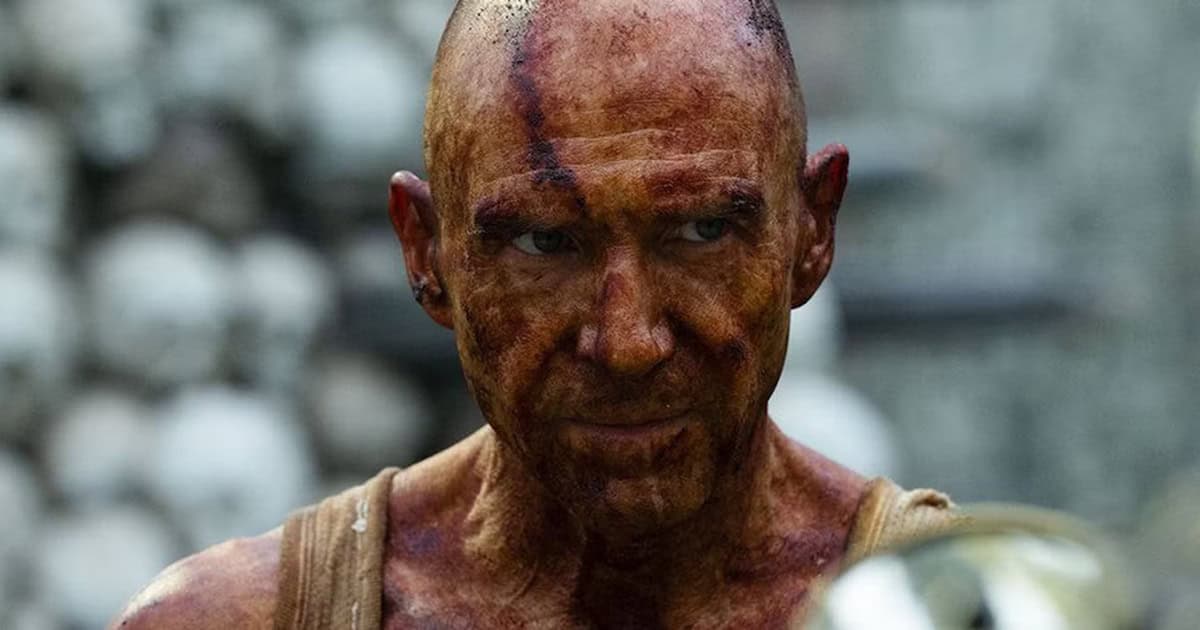PLOT: Twenty-eight years after the Rage virus escaped from a medical research laboratory, the United Kingdom has been decimated and completely removed from civilization. Yet, small pockets of humanity have learned to adapt and live among the infected. When a young survivor, Spike (Alfie Williams), journeys to the mainland for the first time, he believes he may have discovered a way to save his mother, who’s been stricken with a mysterious illness. This leads him to leave the safety of his village in a Hail Mary attempt to get her some help.
REVIEW: I recently rewatched 28 Days Later, and it’s not a stretch to say that—even more than George A. Romero’s classic Dead trilogy—it directly led to the amazing resurgence in zombie content we’ve seen over the last two decades. Without 28 Days Later, there’s no way AMC would have greenlit The Walking Dead, and it’s long been the barometer by which modern zombie movies are measured, even if the film itself preferred the term “infected.” Yet, a proper sequel has been a long time coming, with many having forgotten 28 Weeks Later, which—despite being a pretty solid effort—lacked Alex Garland’s scripting and Danny Boyle’s powerhouse direction.
Both are arguably even more on a roll now than they were back then, with Garland a fine director in his own right and Boyle now an Oscar winner. As such, this is a much more ambitious film than the original, designed to kick off a trilogy that tackles how society might rebuild itself decades after such a catastrophic event.
That’s a compelling hook for a sequel, as several of the characters we follow here have never even known a world without the infected, such as our hero, Spike, played by Alfie Williams. A twelve-year-old, his father Jamie (Aaron Taylor-Johnson) is a scavenger who’s become a leader in their village, and Spike is eager to start earning his keep alongside the dad he idolizes. Over the course of the film, we follow Spike’s journey from a somewhat sheltered child to a young man forced to come of age far too soon, as he begins to learn the truth about the world he was born into and how he’ll have to navigate it.
Much of the movie revolves around his relationship with three adults: his father; his half-crazed (but loving) mother Isla (Jodie Comer), who’s ill and possibly dying; and Ralph Fiennes’s mysterious Kelson, a survivor who’s chosen a life of solitude among the infected. All three actors are superb, but this is Williams’s film, and he delivers a raw, gritty performance that avoids cliché.
Technically, the movie is notable in how it marries an unusually epic look for the franchise (it’s shot in 2.76:1 widescreen) with the grittier digital feel of the original (which has been problematic in the days of 4K). It was filmed using complicated rigs that allowed iPhone cameras to be used to great effect. The result feels both real and elevated. The film also boasts a terrific soundtrack by Young Fathers, though the absence of the classic John Murphy theme takes a bit of getting used to.
Still, I found myself somewhat deflated by the movie—and it’s a similar issue I had with the first. In both 28 Days and 28 Years Later, Boyle and Garland masterfully evoke the world of the infected. Their first acts are always so strong that they struggle to maintain that energy once the story becomes more contemplative and less propulsive. This film, in particular, has an incredible first act, following Spike and his father as they become trapped on the mainland after dark and are stalked by the infected. Everything that follows doesn’t quite live up to that opening, much like how 28 Days Later slowed to a crawl once the villainous soldiers entered the picture. Aaron Taylor-Johnson’s character is especially short-shifted, with it feeling like his arc was prematurely abandoned, even if there’s perhaps more to come from him.
It also suffers from a familiar problem with films shot back-to-back: it ends on a huge cliffhanger, which makes it feel incomplete and less satisfying as a standalone movie. However, the flip side is that once the remaining films are released, they may work better as a cohesive trilogy.
Even so, I had a good time with 28 Years Later, with Johnson, Comer, and especially Fiennes delivering nuanced performances—though, again, Williams is the true star. I’ll definitely be watching 28 Years Later: The Bone Temple when it comes out next year.



